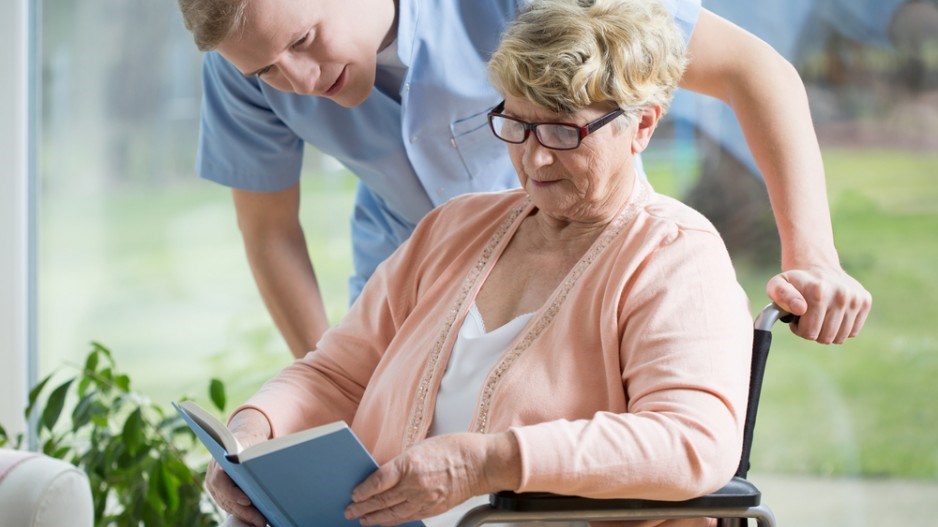What happened: The B.C. government is pumping $50 million into expanding a phone line that seniors can use to find someone to help them do grocery shopping, get prescriptions filled and other tasks.
Why it matters: Seniors are a vulnerable group who are more susceptible to dying if they catch COVID-19, and this line helps them self-isolate.
The B.C. government announced that it will provide the United Way of the Lower Mainland with $50 million to bolster support for seniors, particularly those who are staying at home because of the COVID-19 pandemic.
Much of the funding will be spent to expand the province's 2-1-1 system, to become province-wide. That phone line links seniors with a support network largely of volunteers who help them with necessary tasks, such as grocery shopping and picking up prescriptions, and check in with them.
Previously, seniors in B.C.'s North and Interior regions were not able to use the service. The funding also helps the line be operational 24-7.
Health Minister Adrian Dix held a news conference March 26 to announce the changes and ask for volunteers who might want to take part in the program and help local seniors.
B.C. also has an Office of the Seniors Advocate, which analyzes seniors services and issues in B.C., and makes recommendations to government and service providers to address systemic issues. Its seniors advocate, Isobel Mackenzie was also at the news conference.
"Seniors are most at risk of COVID-19 and the seriousness of this virus, and they are frankly afraid that if they get it, they will die," she said. "They are also more likely to have complicated health issues more so than most of us, and be worried if they will receive the care for those health issues while we're focused on the battle with COVID-19."
She said that many seniors rely on friends and family to visit them, shop for them, pick up medications, make meals and drive to medical appointments. They also often live alone, she said.
The decision to expand the service comes on the advice of an all-party COVID-19 seniors' working group that Mackenzie co-chairs.
"If you want to help seniors with virtual visits, picking up and delivering some groceries, picking up and delivering some medications, maybe dropping off a meal or two, call 2-1-1 or visit the website and we'll try to match you up with a senior in your community who needs help," she said.
"If you are a senior or the family member of a senior who needs help ... call 2-1-1 or visit the website and we'll try to match you up with a volunteer or some kind of service in your community that will provide the help you need."




